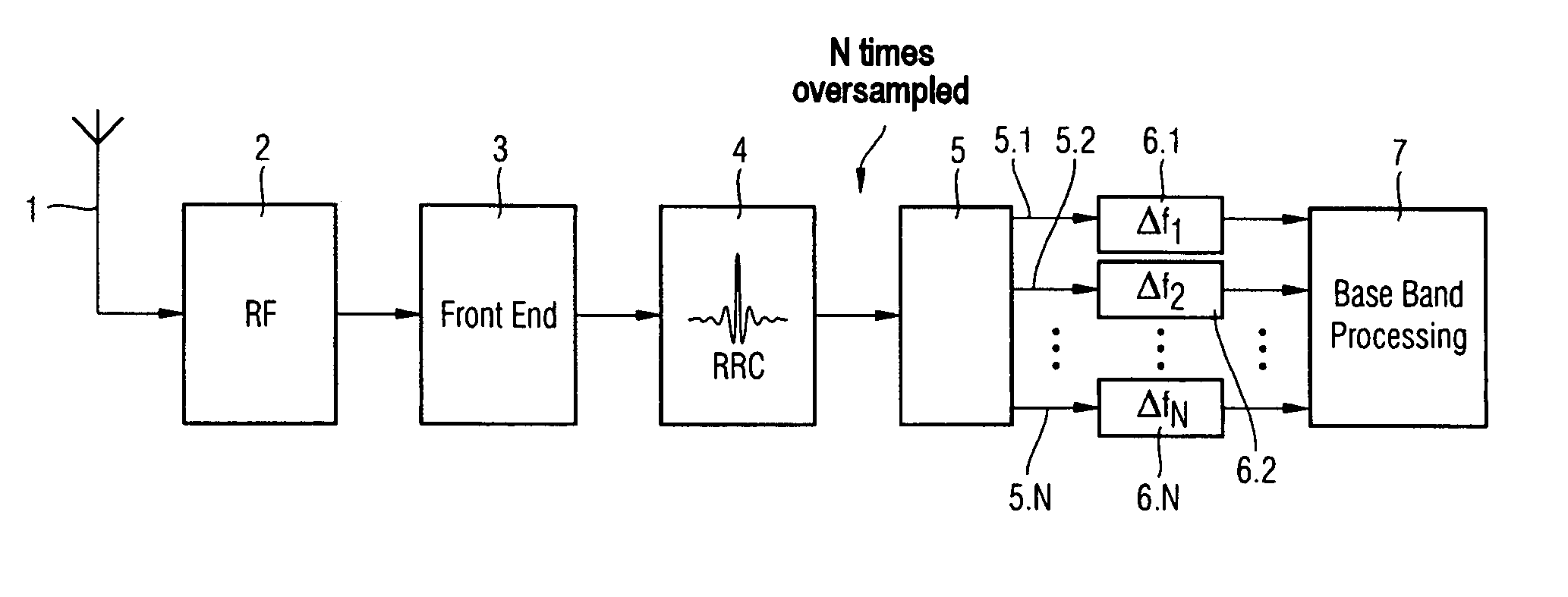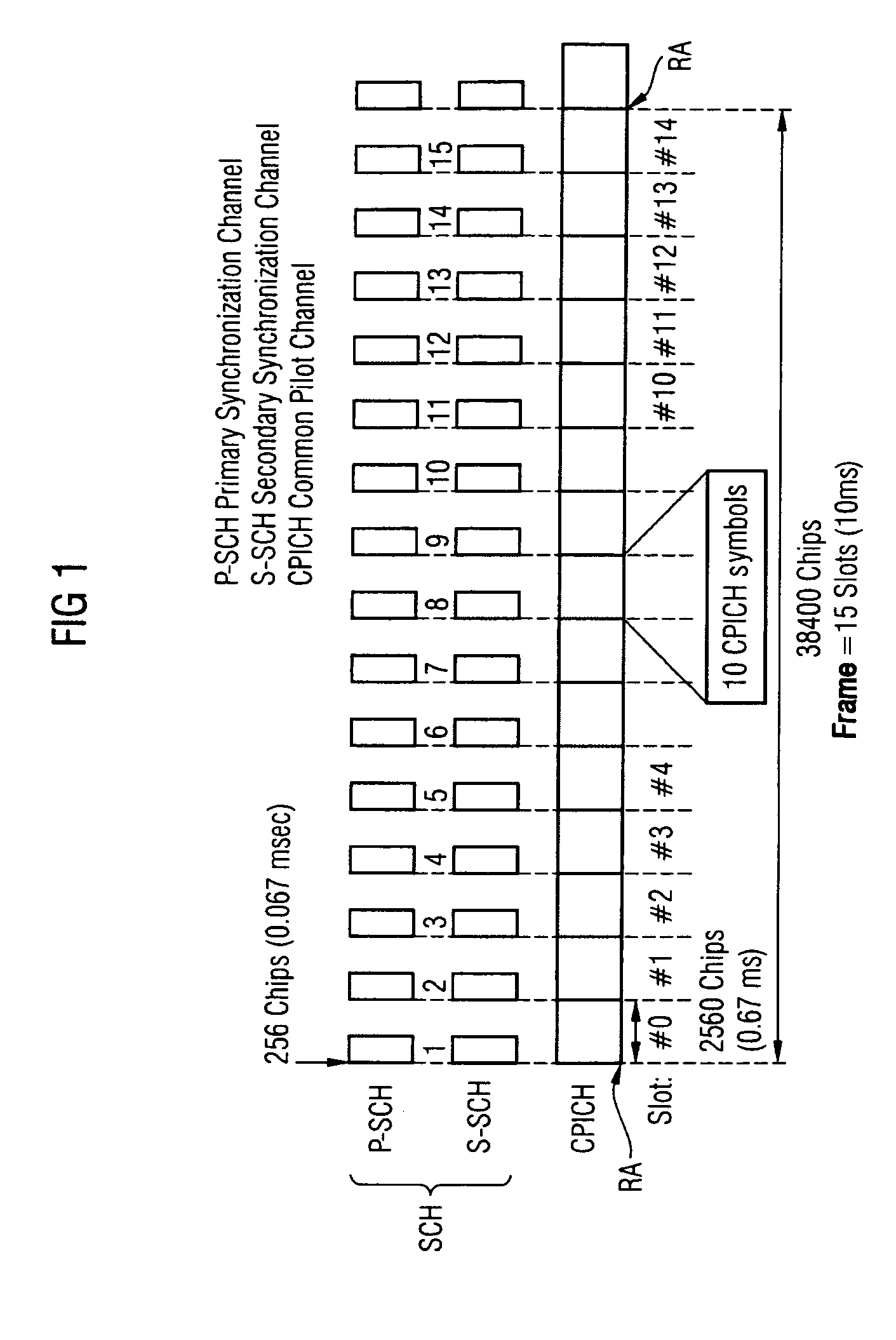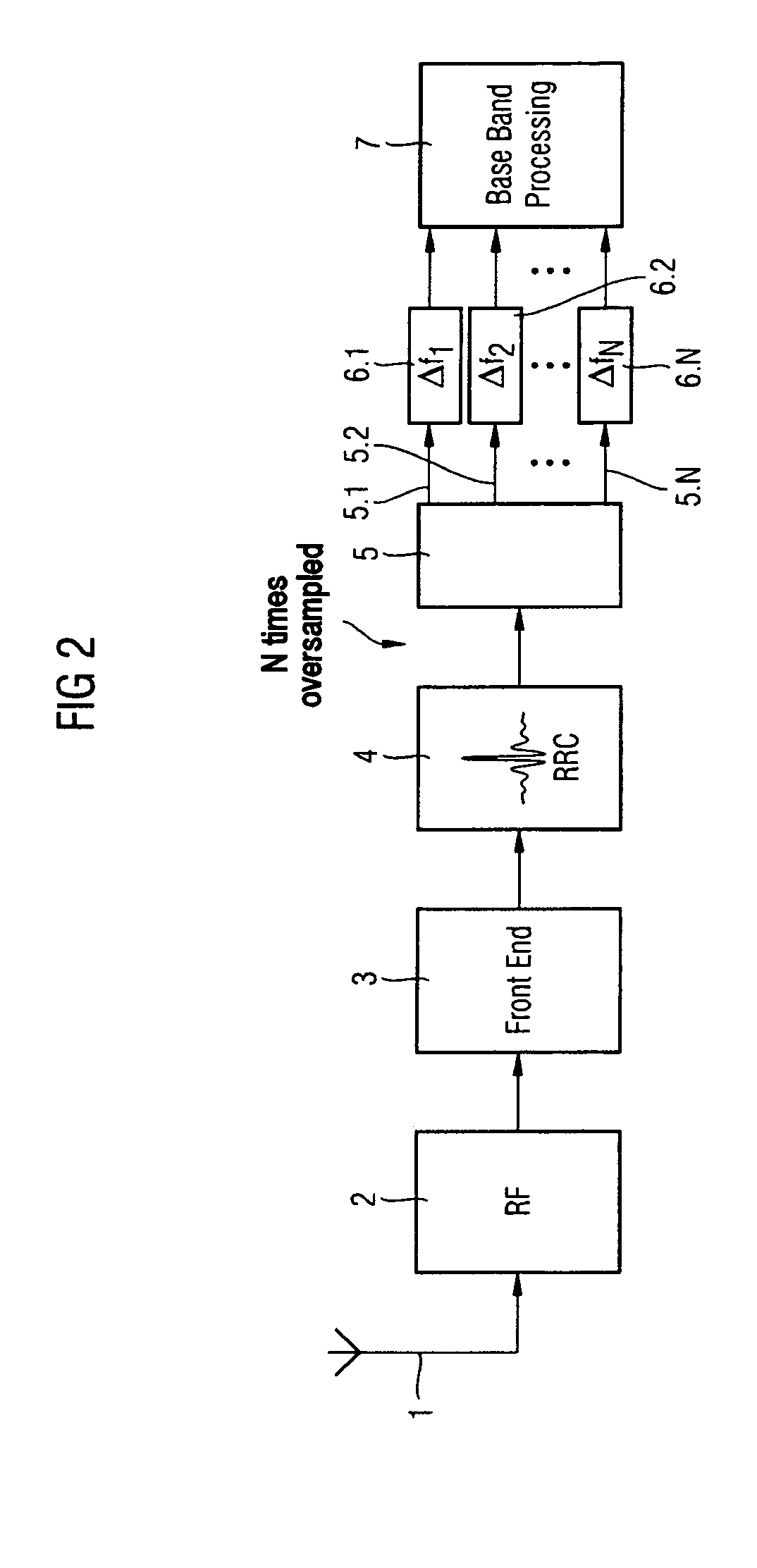Method and apparatus for synchronization of a mobile radio receiver to a base station
- Summary
- Abstract
- Description
- Claims
- Application Information
AI Technical Summary
Benefits of technology
Problems solved by technology
Method used
Image
Examples
Embodiment Construction
[0030] First of all, in order to assist understanding of the following text, an example of a mobile radio standard (UMTS) will be used to explain the steps that have to be carried out by a mobile station during an initial cell synchronization process. In this case, the channel structure is based, by way of example, on the UMTS Standard.
[0031] As is shown in FIG. 1 a UMTS frame comprises 15 slots (#0, #1, . . . , #14). Each slot may contain 2560 chips. The chip time duration Tchip in the UMTS Standard is 0.26 μs. In consequence, the slot time duration is 0.67 ms, and the frame duration is 10 ms.
[0032] Two UMTS channels are involved in the synchronization of the mobile station to a base station (cell search), specifically the synchronization channel SCH and the common pilot channel CPICH. The synchronization channel SCH comprises a first synchronization channel P-SCH (Primary Synchronization Channel) and a second synchronization channel S-SCH (Secondary Synchronization Channel). At ...
PUM
 Login to View More
Login to View More Abstract
Description
Claims
Application Information
 Login to View More
Login to View More - R&D
- Intellectual Property
- Life Sciences
- Materials
- Tech Scout
- Unparalleled Data Quality
- Higher Quality Content
- 60% Fewer Hallucinations
Browse by: Latest US Patents, China's latest patents, Technical Efficacy Thesaurus, Application Domain, Technology Topic, Popular Technical Reports.
© 2025 PatSnap. All rights reserved.Legal|Privacy policy|Modern Slavery Act Transparency Statement|Sitemap|About US| Contact US: help@patsnap.com



